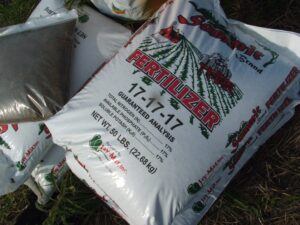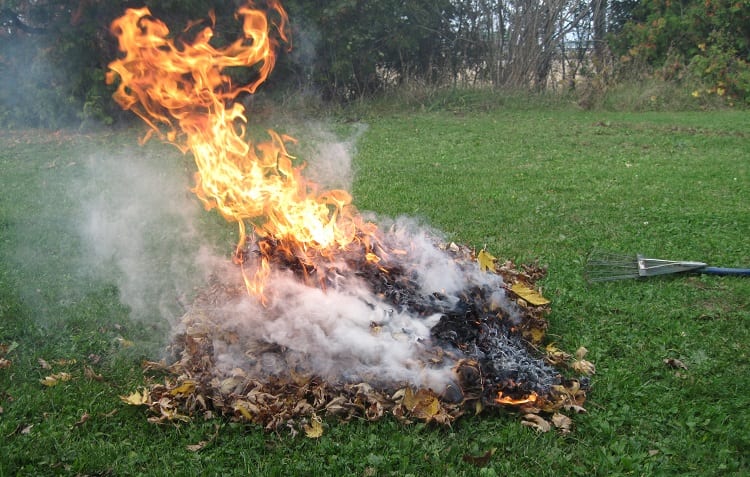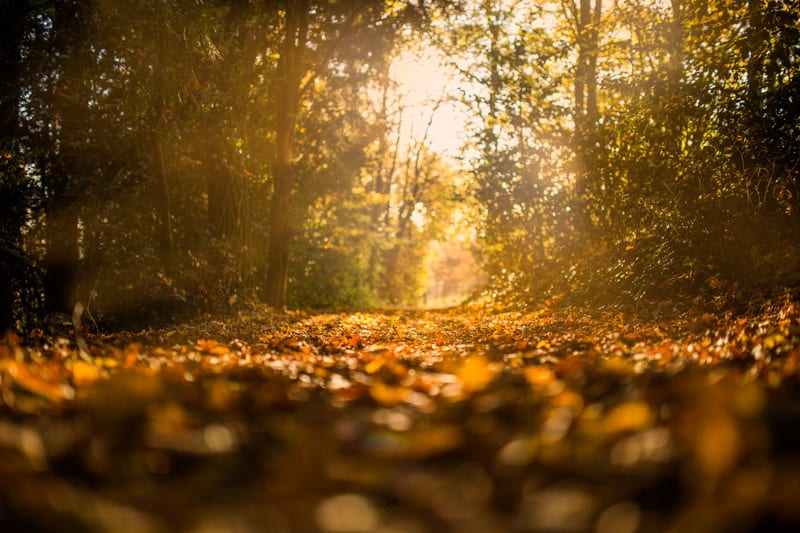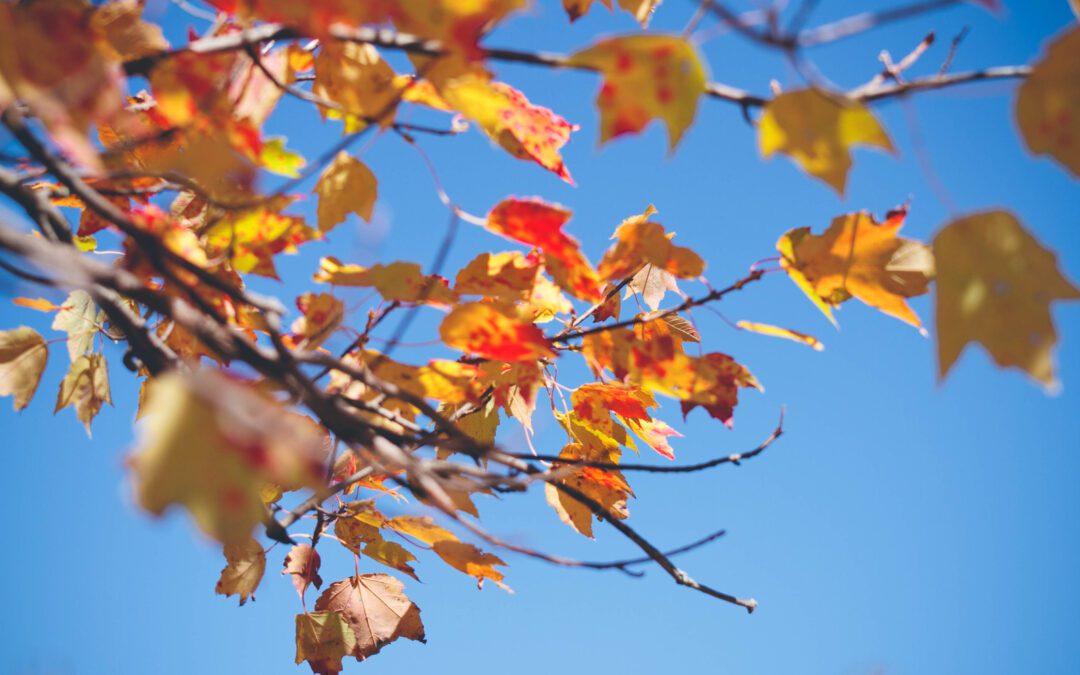Although some may not see the harm in blowing their leaves into the lake, since leaves are “natural,” it is the cumulative effect of everyone thinking this way that causes the damage.

Leaves have nutrients similar to fertilizer. They contain high levels of nitrogen, phosphorus, and potassium. When leaves naturally blow into the lake from trees on a shoreline, the lake can handle the influx. But when numerous property owners dump hillsides full of leaves into the lake, it can upset the natural ecological balance.
The negative ecological impacts of dumping leaves into the lake are numerous.
- Leaves take a long time to decompose at the bottom of the lake, where low oxygen levels slow down the process. As the leaves decompose, sulfur dioxide is released into the air and we get that rotten egg smell.
- Leaves prevent sunlight from reaching the microbes in the water that process sunlight into nutrients that feed aquatic plants. These microbes themselves are food for small fish.
- Decomposing leaves create muck on your shoreline, which is unpleasant to swim in, as well as unsightly. Too much muck discourages fish from spawning in that area.
- Nutrients from leaves can cause excessive amounts of algae growth, which can be toxic. Even if the algae is non-toxic, this overabundance of decaying algae causes bacteria to use up the oxygen in the water, which can kill fish and other aquatic life.
The convenience of disposing your leaves into the lake just does not justify all the potential negative impacts that can occur.
Is Burning a Better Alternative?
From the lake’s perspective, yes, burning is better, however there are other environmental impacts to consider.

According to Marshall County Solid Waste
“Even burning yard waste dirties the air. Five pounds of leaves creates about one pound of air pollution, according to the Indiana Department of Environmental Management. Smoke is an accumulation of particulates, tiny pieces of carbon and other substances that embed themselves in our lung tissue. For elderly people with emphysema, people with asthma, or young children with developing lungs, regular exposure to pollution has been proven to cause serious, long-lasting damage.”
And some may worry about adding carbon to an already carbon saturated atmosphere. Keep in mind that leaves and other organic material are already in the carbon cycle and do not contribute to the increasing atmospheric load.
IF you choose to burn, please make sure you do it where the ashes won’t run off into the lake. The ashes are very high in nutrients, just like the leaves themselves.
What to do With All Those Leaves?
An environmentally sound and inexpensive way to dispose of fallen leaves is composting. Composting takes no more effort than just raking them into a pile in a protected area of your property. (There are a few steps you can take to speed up the decomposition process.) As a result, you will have the perfect material for mulching plants next spring. Mulching with compost adds nutrients back into the ground that were taken out by the natural processes of the tree’s growth. You can also add kitchen waste (no meat or bones) to make the compost more nutrient-rich. Click here for more information on how to start a compost pile.
Finally, for those who do not wish to compost or burn their leaves, you can hire a local company to dispose of them.

“October, baptize me with leaves! Swaddle me in corduroy and nurse me with split pea soup. October, tuck tiny candy bars in my pockets and carve my smile into a thousand pumpkins. O autumn! O teakettle! O grace!” ~ Rainbow Rowell

Hi, I’m Debbie Palmer. I received a BS in Horticulture from Purdue University. Here at LMEF, I am responsible for outreach presentations, monitoring the lake and it’s wetlands, project manager for restoration and research projects, and act as a community resource for all things related to the well-being of Lake Maxinkuckee and its surrounding watershed. I completed Indiana Watershed Leadership Academy, volunteer with the Indiana Clean Lakes Program, Hoosier River Watch and Marshall County Lakes and Waters and serve as a Board Member for Indiana Lakes Management Society.


Recent Comments